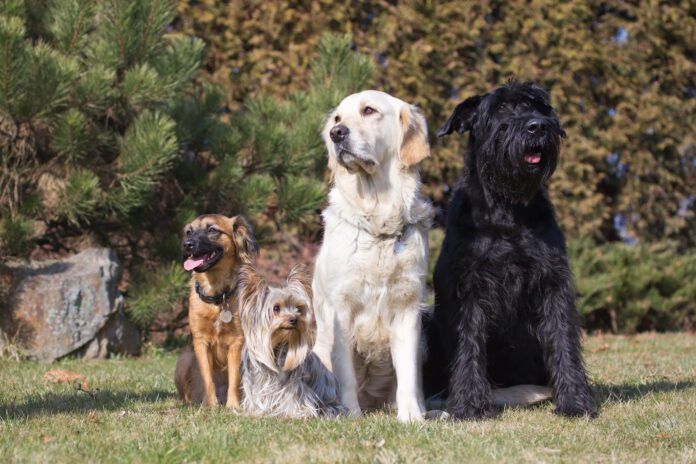If there is one thing that growing up around a breeding kennel has taught me it’s that every dog is an individual. In my experience, it’s possible to make some guesses about future behavior based on the breed of the dog, the temperament of the parents, the skills that run in the genetic line, and so on—that’s what selective breeding is all about—but there are still so many unknowns that go into how a specific dog acts and what she might need. At the end of the day, the trick to being a good steward to the dogs in your care is to pay attention to the dog in front of you rather than assuming she will act a certain way based on her breed.
While this has long been a discussion around the family dinner table, it came to mind again this week when I ran across a call for participants for a dog breed behavior study. The goal of the study, which will be conducted by Harvard University’s Canine Brains Project, is to investigate “behavioral traits in dogs from different breeds and lineages.” The data will be gathered via experiments designed to “emulate situations that dogs regularly encounter in their daily lives, including meeting a new person, interacting with their human, and solving food puzzles.”
“While it is commonly acknowledged that different dog breeds exhibit varying temperaments and behaviors, scientific research in this area remains surprisingly sparse,” the project says in its description of the study. “The Canine Brains Project aims to address this gap in knowledge with our Dog Breed Behavior Study.”
The description of the experiments to be conducted suggests that the study will focus primarily on personality traits like sociability, reactivity, communicativeness, and critical thinking ability rather than skills-based behaviors such as herding, tracking, or retrieving. To me, this divide is interesting in that it seems to set aside whether breed affects how well a dog can perform a specific task in favor of asking how much (if at all) breed determines temperament. As a side note, the Canine Brains Project is also doing research on how the dogs from historically working breeds use their brains that I can’t wait to see the results from.
There was a separate study, published in 2022, looking at how genetics might shape complex behavioral traits in dogs, which proposed that behaviors “perceived as characteristic of modern breeds” actually come from thousands of years of adaptation predating the formation of those breeds with “modern breeds distinguished primarily by aesthetic traits.” Interestingly, the study also noted that for “more heritable, more breed-differentiated traits, like biddability (responsiveness to direction and commands), knowing breed ancestry can make behavioral predictions somewhat more accurate” while for “less heritable, less breed-differentiated traits, like agonistic threshold (how easily a dog is provoked by frightening or uncomfortable stimuli), breed is almost uninformative.”
So how much of a dog’s personality can be attributed to her breed or family line? Anecdotally, I have met both timid Airedales and bold ones. The breed has a reputation for being aloof with strangers, but quite a few I’ve known have been gregarious lap dogs. I have also seen personality traits that show up in generation after generation of related dogs.
While no one scientific study is determinative—valid scientific research must be repeatable, objective, and broad (or narrow) enough to reasonably answer the question at hand—I’ll be interested to see what information the Canine Brains Project study brings to the conversation.






